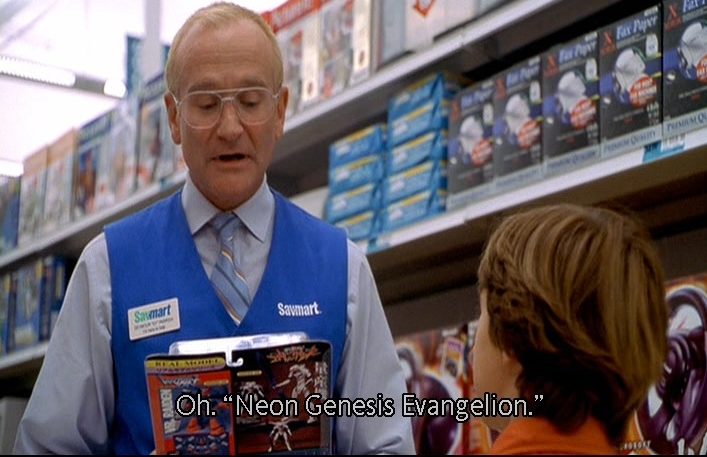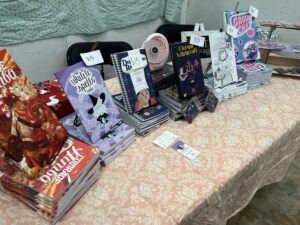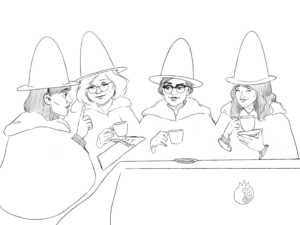Editor’s note: This article touches on mental health challenges that include depression and suicide. We know how tough these topics are — especially if you’re not quite feeling up to taking them on at the moment. We’re here for you! Feel free to take a break and come back if you need to. <3, your friendly neighborhood POME Editorial Crones.
When a celebrity dies, complicated feelings rise up — laughter and hangups and pain and a longing for closure that we may never get. These faces that we never really knew on a personal level leave behind legacies of stories that changed us. We, as a people, are lonely, and tend to gravitate towards these warm faces, forgetting we are only spectators. But as time passes, we move on almost without exception.
One death that we haven’t quite forgotten yet is Robin Williams’. He was a man that made many of us laugh all the way from childhood to adulthood. His death by suicide in 2014 took us all by surprise, and it reminded us that no matter how big the smile, many of us hurt terribly inside.
Since Robin Williams passed on, his image has posthumously shifted from comedy legend to a victim of mental illness. Depressed kids across the globe, previously trapped within their minds, have found visibility on the internet through him. They don’t have to be alone now, and some of them have found solace and validation in Williams’ life. And through the power of the internet, his image as a nerd icon has also become more prominent.
Robin Williams’ daughter, Zelda, was named after the prestigious game series when she was born in 1989. The duo appeared together in a very memorable commercial for the 3DS port of The Legend of Zelda: Ocarina of Time in 2011.
In a short interview tied to the ad, Williams explains that he and his wife played the iconic adventure series for the NES while Zelda was in the womb. They liked the name, so it just sort of stuck, and as Zelda grew up, she played the N64 game Ocarina of Time.
This tantalizing bit of trivia — that one of the world’s most legendary comedians named his daughter after a video game — seemed to be a victory for nerds. Nerds have since created a Robin Williams that is like them. One of nerds’ bigger claims is that Williams was a big fan of hit 90s anime Neon Genesis Evangelion. Evangelion follows three kids who pilot robots to save the world from invading monsters called Angels. Through its 26-episode run, this charming adventure crumbles into a deconstruction of the infamous kid hero genre. Evangelion’s thirteen-year-old world saviors become debilitated from their traumatic pasts and things start to come a tumblin’ down on them.
When I first watched Evangelion at the beginning of 2017, my depression was at its peak and I found comfort in the show despite its darkness. Evangelion depicts mental illness as this incredibly raw and scratchy feeling that claws at you from the inside out. It’s this feeling of being at the very edge of life and death.
The community of fans that Evangelion has brought together is a tight knit group of depressed kids, many of them LGBT. They associate heavily with the trauma and over-the-top violence of the show, and use it as a way to dramatize their own pain into a performance, like laughing yourself into a messy pile of tears. Evangelion lies close to its fans’ hearts — sometimes a little too close. As is often the case with fandom, the following to Evangelion can so intense that sometimes the fans’ need for self-love is trumped by their desire to have their love for the show validated by a larger than life figure. Like Robin Williams.
So when I discovered that Williams was allegedly a big fan (according to this Reddit AMA), I raised my eyebrows for a moment but quickly remembered that Zelda commercial. All doubt was erased and I began a deep dive into Williams’s history with Evangelion.
Then I read the rumor that Williams had campaigned to play the part of Shinji Ikari’s abusive father, Gendo “Get in the Robot” Ikari, in Evangelion 1.0: You Are (Not) Alone. This seemed to be a little bit of a stretch.
This rumor was visited in the conspiracy video produced by Eva Monkey called “Evangelion & One Hour Photo.” Williams’ character hands an Evangelion toy to a child and mispronounces the show title as “Ee-van-jelly-ohn.” As a wannabeeaboo myself, I can say that I thought the series’ title was pronounced that way for the longest time, but this is the internet, so naturally an investigation was soon underway: a Study in True Fandom™.
The conspiracy video ultimately climaxes in an interview with the director, Mark Romanek, who explains that the Evangelion toy was only included in the movie because he personally thought it looked cool, having no idea what it was.
At this moment, nerds across the world felt a cold come over them, our bowls of popcorn falling into the gap between our criss-cross-apple-sauced legs. Our mothers stepped in and saw our stunned faces, thinking we must have just watched the ending to No Country for Old Men.
The trail went cold. So much build-up and time spent scouring for clues…all for nothing. Robin Williams was never a fan of Evangelion, or at least he wasn’t the fan the internet needed him to be.
Let’s revisit that Nintendo interview with Williams and his daughter. The latter half of the four-minute video features Zelda playing the 3DS game while her father watches. A soft nostalgic glow comes into Williams’ eyes and we understand that he has likely not played the game since Ocarina of Time’s release in 1998, if he ever did play it all.
The Legend of Zelda games are very personal. Link, the silent protagonist, leads the gamer into interpreting themselves as him. Each game is an epic that you get to be a part of, and I’m sure that in 1998 when Zelda Williams was 9 years old, it was a story the two could bond over.
It is possible that his love for the series doesn’t stem from his own attachment to gaming, but from his love for his daughter.
This image of Williams crafted by the amateur sleuths of YouTube is likely nothing more than our own selves projected onto him. We want Williams to be a diehard Zelda fan with a side-hustle in weebing out over Giant Mecha / Boy of Destiny Animes so we can feel better about liking those things.
But we don’t need Robin Williams to like those things for it to be okay. Art is a communication between the artist and yourself. For you to accept this gift that someone has created, to let down your guard so this creation can change you, is to be vulnerable. Caring about art in this way takes strength.
Robin Williams and his wife let themselves fall into that place when they named their daughter Zelda. It’s a powerful name that represents a moment in time where that game meant the world to them. That act of love is the reason that people create, and it is just as valid as your love as a fan. Whether you express that love through fanart or conversations with friends or even just in your memories, it’s all valid.
What you like is not stupid and you are not alone.
Featured image source: One Hour Photo (2002).



